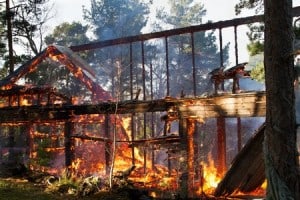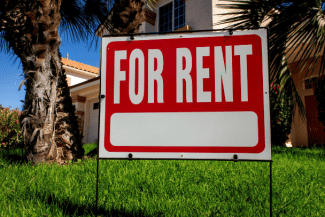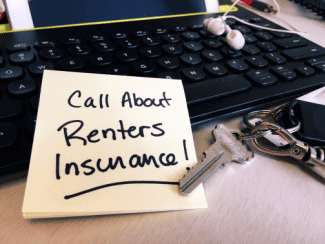Fire Prevention Tips for Landlords

Install and maintain smoke detectors
For optimum protection, fire alarms should be installed in every bedroom, living area and hallway. This will almost certainly be required by the local fire code, but smoke detectors and fire alarms should be checked every time a tenant moves out. Make sure you check it at the start of each tenancy, during routine inspections, and ask your tenants to check them too.
Fire extinguishers
At a minimum, you should have a fire extinguisher located in the kitchen. If you have properties with multiple levels, consider placing one on each floor. Keep a fire extinguisher somewhere visible and easy to locate, but out of reach of children and inform tenants of its location at the start of a tenancy and ensure they know how to operate one. While a fire extinguisher may not be capable of combatting widespread flames, they can quickly control small outbreaks and may prevent large-scale damage. Regularly check your extinguisher works and get it serviced according to the manufacturer’s instructions.
Fireplaces, heating and Maintain a strict no-smoking policy
Under no circumstances should you allow your tenants to smoke on your properties, neither indoors or outdoors. Get a professional to clean your fire place at the end of autumn or as the weather starts to cool and have a fireguard and ensure tenants use it on fire places. Regularly have all of your heat sources and gas lines checked, and change filters. Make sure you include very strict language in your lease agreement and follow up on any suspicious activity.
Report issues and document everything
If a problem or issue doesn’t directly bother them, most tenants won’t mention anything to their landlords. However, this can be dangerous on your end if its related to something like an electrical issue or fire hazard. Give your tenants your contact information and encourage them to call you anytime they suspect something is wrong. In addition to potential loss of life and property damage, fires often lead to legal issues. In order to protect yourself from potential lawsuits or penalties, remember to document all the efforts you’ve made to protect your properties and tenants from fire-related harm.
Source: hibusiness.ca















 Accessibility
Accessibility